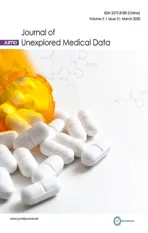Cancer is a word,not a sentence
2020-10-22
Department of Surgery,Division of Surgical Oncology,VCU School of Medicine,Richmond,VA 23298,USA.
When a woman is diagnosed with breast cancer,so many questions form in her head.“Will I live?”“Can I save my breast?”“How can I live my life with cancer or after cancer?” When considering these questions,clinicians realize that curing patients with breast cancer is not the same as caring for patients with breast cancer.This Special Issue of theaddresses not only the medical aspects of breast cancer care but also the effect this disease (and what we do to treat it) has on patients’ lives.
Dr.Kass and her colleaguesdiscuss in their article,“Reasons symptomatic breast cancer patients delay seeking medical care”,that women diagnosed with breast cancer often delay seeking care due to issues surrounding family/children or other matters they consider more pressing than cancer care:work responsibilities or concern about keeping their jobs,transportation costs and difficulty,fear of being judged by healthcare workers,and fear of not being able to afford treatment.Recognizing the barriers women face with seeking cancer care when they are curable is the first step in helping us care for a vulnerable population.If we never see these patients,we cannot help them through their cancer journey.
Appropriate loco-regional therapy is a vital part of breast cancer care and this is addressed in two articles,“Narcotics and breast surgery:a review of current literature” by Dr.Abbott’s groupand “Ductal carcinomain the elderly:what is the ideal treatment plan?” presented by Dr.Plichta and her colleagues.Dr.Abbott’s group discusses that minimization of opioid use in the perioperative setting for breast cancer surgery is both possible and beneficial.With the advent of ERAS (enhanced recovery after surgery) protocols and appropriate managing of expectations,we can reduce narcotic use and subsequent addiction.Evaluating trends in management of DCIS in women over the age of 70,using the National Cancer Database,DeChantdetermined that age alone is not sufficient to predict adequacy or success of therapy.Functional assessment of the elderly,their level of fitness and competing comorbidities,is a concept studied by a number of groups and this article supports the conclusion that this form of assessment should be used to tailor therapy rather than age alone.
Systemic therapy can affect not only the survival of patients with breast cancer but also their quality of life.Gastrointestinal side effects of cytotoxic chemotherapy are one of the most common complaints among those undergoing treatment.Drs.McCourt and Wallen and colleaguesdiscuss in this Special Issue a novel predictive assay proven to be helpful in identifying individual breast cancer patients at high risk of developing moderate or severe delayed nausea after treatment with taxane-based therapies such as docetaxel/cyclophosphamide and docetaxel/carboplatin/trastuzumab/pertuzumab.Assays such as this can help individualize anti-emetic regimens so as to maximize their therapeutic potential while minimizing side effects.One of the mainstays of adjuvant therapy for hormone receptor positive breast cancer is endocrine therapy.However,concerns regarding side effects of these medications continues to limit adherence to the regimen.Patients with metabolic syndrome (a syndrome which increases in incidence yearly) could potentially be more susceptible to untoward side effects.Drs.Lytkin and Briukhanova and their research groupdemonstrated in a rat model that the use of exemestane can affect metabolism in at risk subjects.While this is early,pre-clinical work,it opens an avenue for further research into how best to use vital adjuvant therapy while managing side effects and improving adherence.
Finally,we must look to survivorship.While we may cure the cancer with surgery,radiation,and systemic therapy,we often create life-long health issues which can negatively affect quality of life.Dr.Ayre and Parkerdiscuss in their article the impact of lymphedema resulting from breast cancer therapy.They note that one in six women treated for breast cancer will develop lymphedema.They emphasize the need for patient education,early detection through physical exam or other confirmatory testing,effective conservative management,and the availability of operative management should conservative measures fail.
The authors in this Special Issue present a strong case for support of the breast cancer patient during her cancer journey that can not only improve cancer outcomes but also enhance patient/survivor quality of life and perception of wellness.With their work,these authors prove that caring for the patient with cancer has importance beyond the curing of the patient with cancer.Cancer is not a (life) sentence,and supporting a patient through her journey to the other side of cancer is an essential task we must all undertake.
Researched and wrote this article:McGuire K
Not applicable.
None.
All authors declared that there are no conflicts of interest.
Not applicable.
Not applicable.
© The Author(s) 2020.
